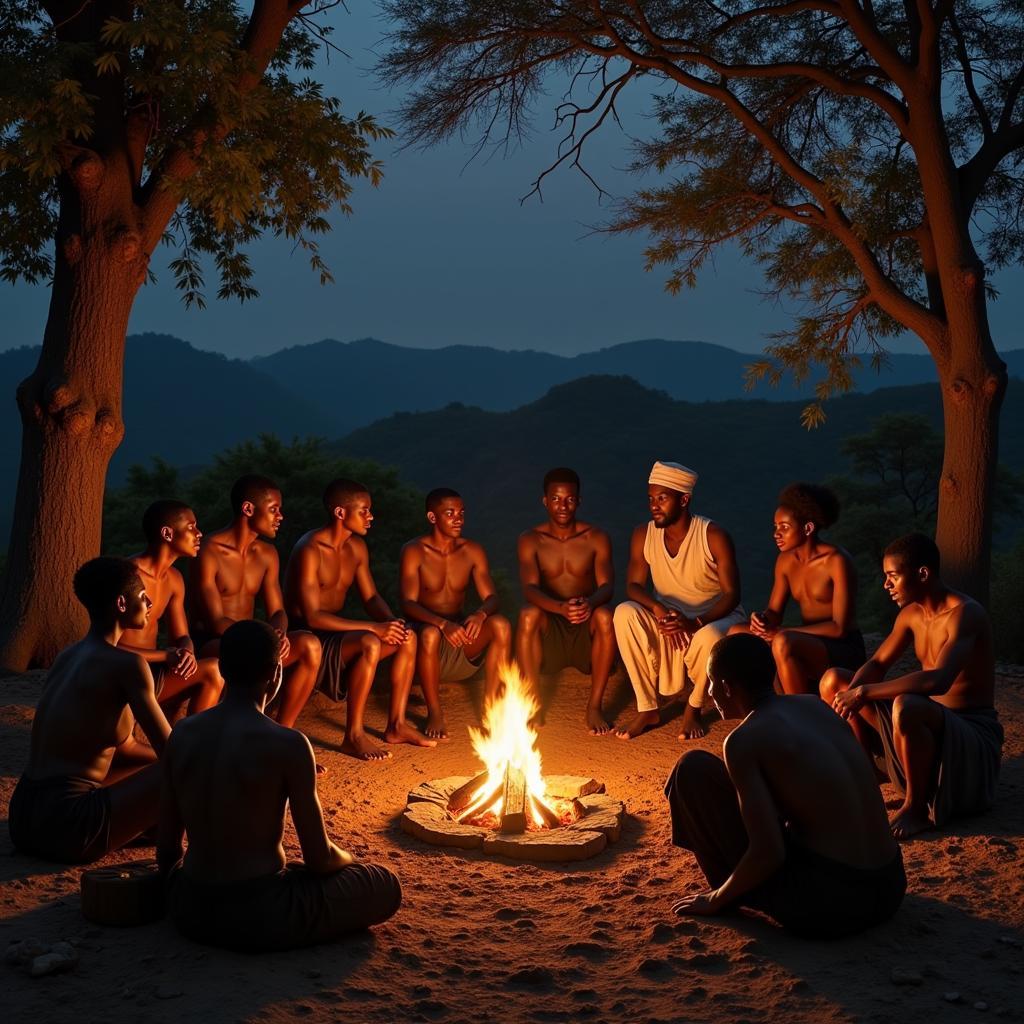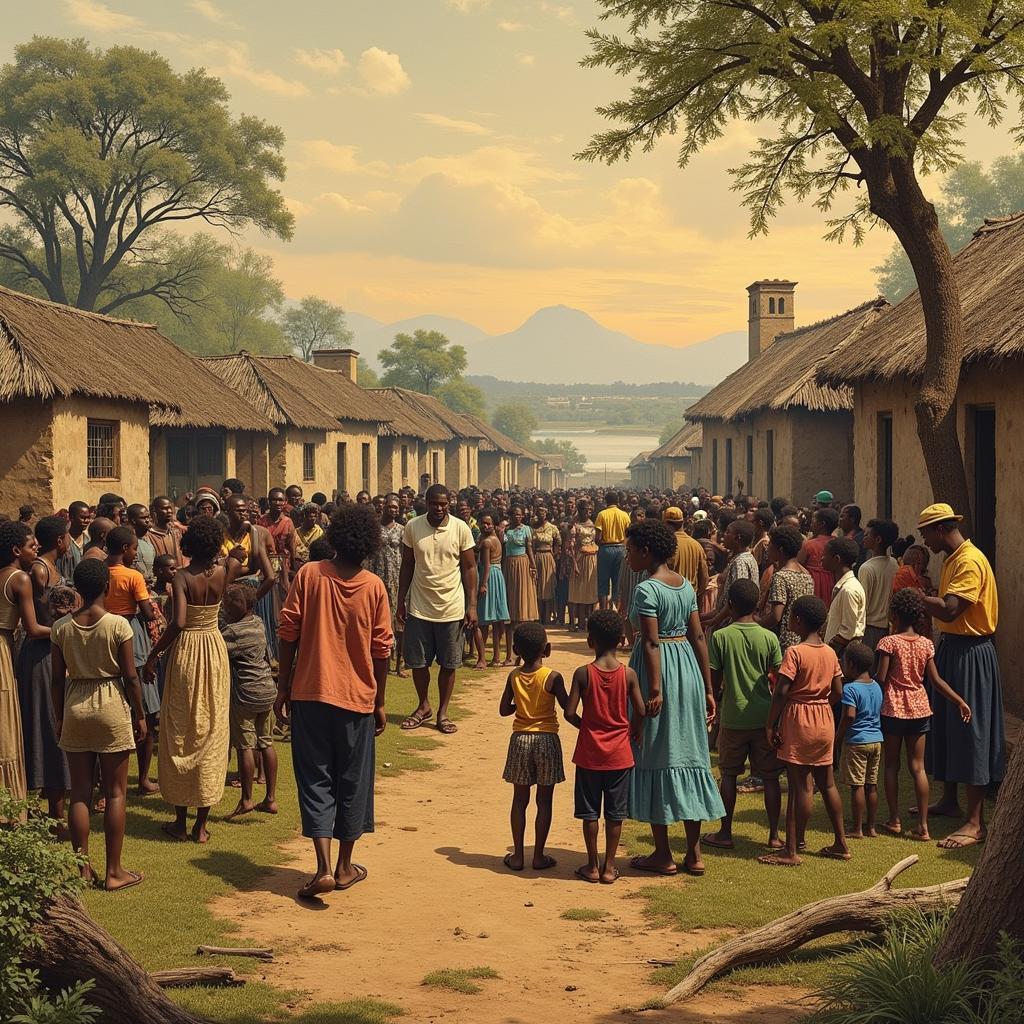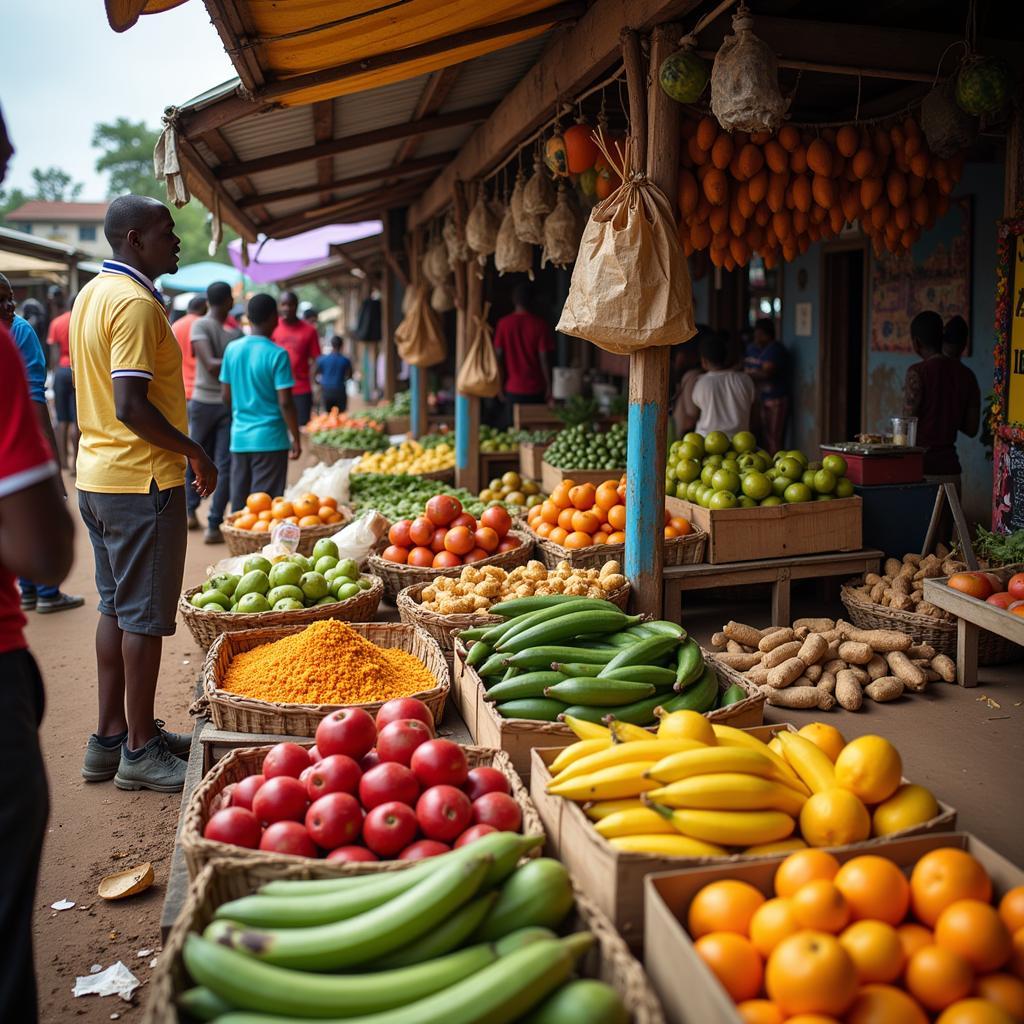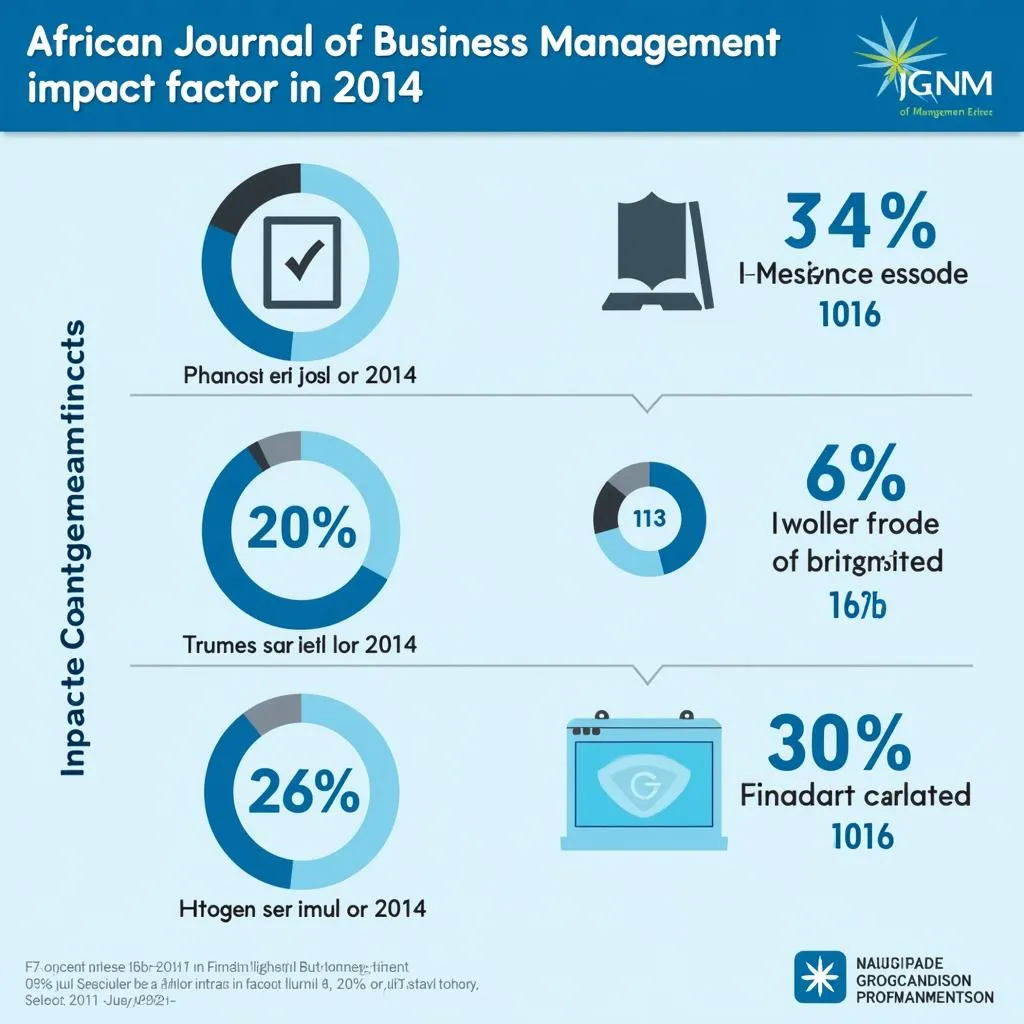Exploring 17th Century African Literature
17th Century African Literature offers a fascinating glimpse into a period marked by significant societal shifts. While the written tradition often focused on religious texts and historical chronicles, rich oral traditions continued to flourish, preserving cultural values, historical narratives, and philosophical reflections. This exploration delves into the diverse literary landscape of 17th century Africa, examining both written and oral forms, and highlighting the complexities of a continent grappling with external pressures and internal transformations. This era provides a valuable lens for understanding the evolution of African literary expression. After this introduction, let’s dive deeper into the specific regions and forms of literature prevalent during this time.
Written Texts and Religious Influence in 17th Century Africa
The 17th century witnessed the increasing influence of external forces, particularly in coastal regions, leading to the adoption of new writing systems and literary forms. Islamic scholarship flourished in North and West Africa, with notable centers of learning producing religious texts, legal documents, and historical chronicles in Arabic. In Ethiopia, Ge’ez remained the language of religious literature, preserving a rich tradition of Christian texts. This period also saw the beginning of European interactions with sub-Saharan Africa, which, while often disruptive, introduced new writing systems and literary genres.
The spread of literacy, particularly through religious instruction, began to shape literary production. While religious texts formed a significant portion of written literature, they also played a role in preserving local languages and oral traditions. For example, some religious texts were translated into local languages, providing early examples of written literature in those languages and paving the way for future literary developments.
Oral Traditions: The Heart of 17th Century African Literature
Despite the growing influence of written literature, oral traditions remained the dominant form of literary expression across much of Africa in the 17th century. These traditions, passed down through generations, encompassed a wide range of genres, including epic narratives, proverbs, poetry, songs, and folktales. A history of South African li played a key role in cultural preservation. Oral literature served as a repository of cultural knowledge, historical memory, and philosophical thought.
 17th Century African Storytelling Tradition
17th Century African Storytelling Tradition
These narratives often explored themes of community, leadership, morality, and the relationship between humanity and the natural world. They also served important social functions, from entertainment and education to conflict resolution and social commentary. The oral tradition provided a platform for social and political discourse, allowing communities to reflect on their experiences and articulate their aspirations.
The Impact of Societal Changes on 17th Century African Literature
The 17th century was a period of significant social and political change in Africa. The transatlantic slave trade had a devastating impact on many communities, disrupting social structures and leading to the forced migration of millions of people. African Diaspora in North America grew during this period. This traumatic experience found its way into oral traditions, with stories and songs lamenting the loss of loved ones and reflecting on the injustices of slavery. Internal conflicts and the rise and fall of empires also shaped literary themes, with narratives exploring issues of power, resistance, and resilience.
 Impact of the Slave Trade on 17th Century African Literature
Impact of the Slave Trade on 17th Century African Literature
Who are some notable figures in African literature during this period?
While pinpointing individual authors in the predominantly oral tradition is difficult, the narratives themselves bear witness to the creative genius of countless storytellers and poets across the continent. South African people preserved rich oral histories and traditions. Their work, passed down through generations, continues to offer insights into the complexities of 17th century African Life.
Conclusion: A Legacy of Resilience and Cultural Richness
17th century African literature, both written and oral, reflects a continent undergoing profound transformation. While grappling with external pressures and internal conflicts, African communities continued to produce vibrant literary works that preserved their history, culture, and values. African Americans in Boston offer a specific lens to study the diaspora. This period provides a crucial foundation for understanding the evolution of African literature and its enduring power to reflect the human experience. Exploring 17th century African literature offers a glimpse into a rich and complex world, revealing the resilience and creativity of African communities in the face of adversity.
FAQ
-
What are the main forms of 17th century African literature?
Oral traditions, including epic narratives, poetry, and proverbs, were dominant, while written literature consisted primarily of religious texts and historical chronicles. -
How did the slave trade impact African literature?
The slave trade led to the incorporation of themes of loss, displacement, and resistance into oral traditions. -
What languages were used in 17th century African literature?
Arabic and Ge’ez were prominent in written texts, while numerous local languages flourished in oral traditions. -
Where can I find examples of 17th century African literature?
Research institutions and online archives are valuable resources, though much of the oral tradition continues to be transmitted through performance. -
What are some key themes explored in 17th century African literature?
Community, leadership, morality, and the relationship between humanity and nature are recurring themes. African countries who speak French maintained a connection to both African and European literary traditions. -
How did oral tradition function in 17th century African societies?
Oral tradition preserved history, transmitted cultural values, provided entertainment, and facilitated social and political discourse. -
What challenges exist in studying 17th century African literature?
The ephemeral nature of oral tradition and limited access to written materials pose challenges to researchers.
When you need assistance, please contact us at Phone: +255768904061, Email: [email protected] Or visit our address: Mbarali DC Mawindi, Kangaga, Tanzania. We have a 24/7 customer support team.

